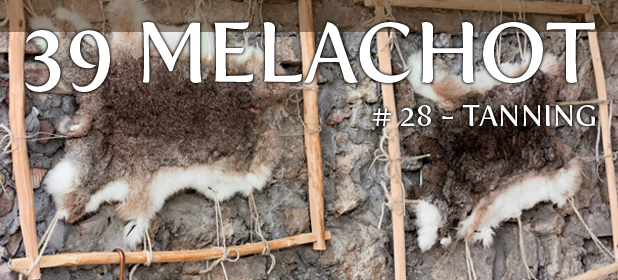The hides that were removed from the animals had to be preserved and transformed into leather. This entailed salting the skins to remove all moisture, stretching the skins to flatten them, and working the leather to make it supple. Collectively, these constitute the process of tanning, though performing any one of them would violate the melacha of m’abeid.
From a Biblical perspective, m’abeid does not apply to preserving food. However, because it so closely resembles m’abeid, pickling and other forms of food preservation are rabbinically prohibited on Shabbos. There are likewise limitations to salting certain vegetables more than one piece at a time, even for eating.
In a completely different vein, oiling leather or breaking in a stiff shoe by pressing the leather by hand is prohibited on Shabbos because it corresponds to the final step of the process, making leather supple.
This is just an introduction to the concepts of the melacha of m’abeid; it is not a substitute for a full study of the halachos.

